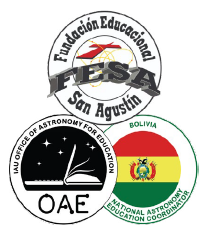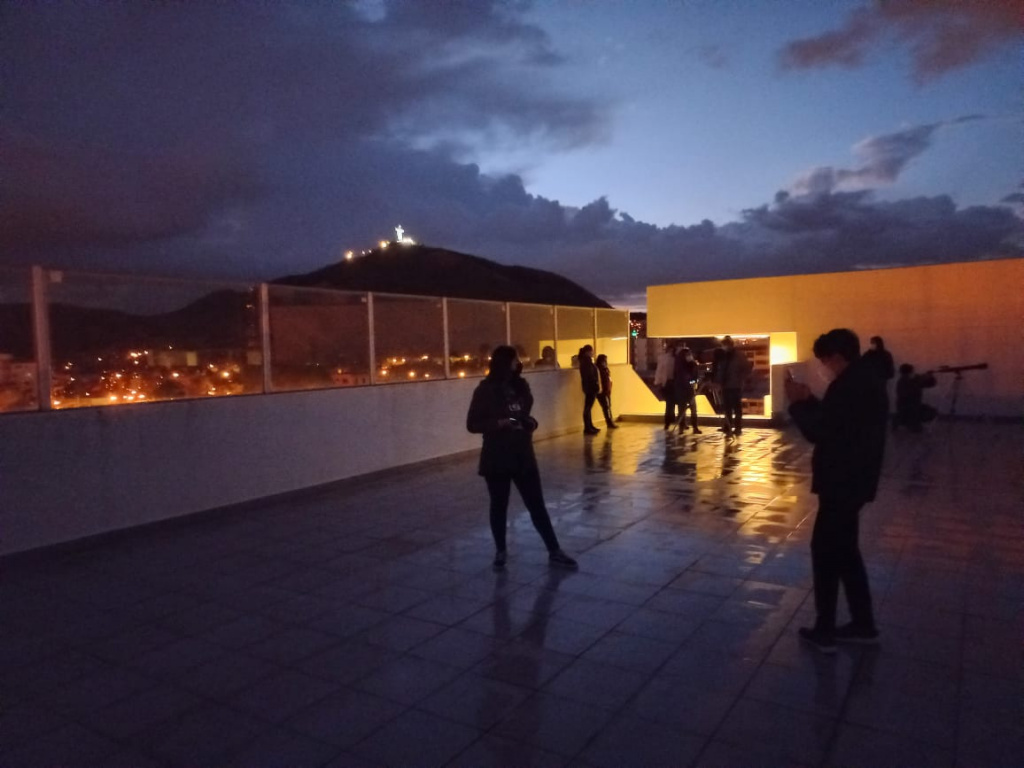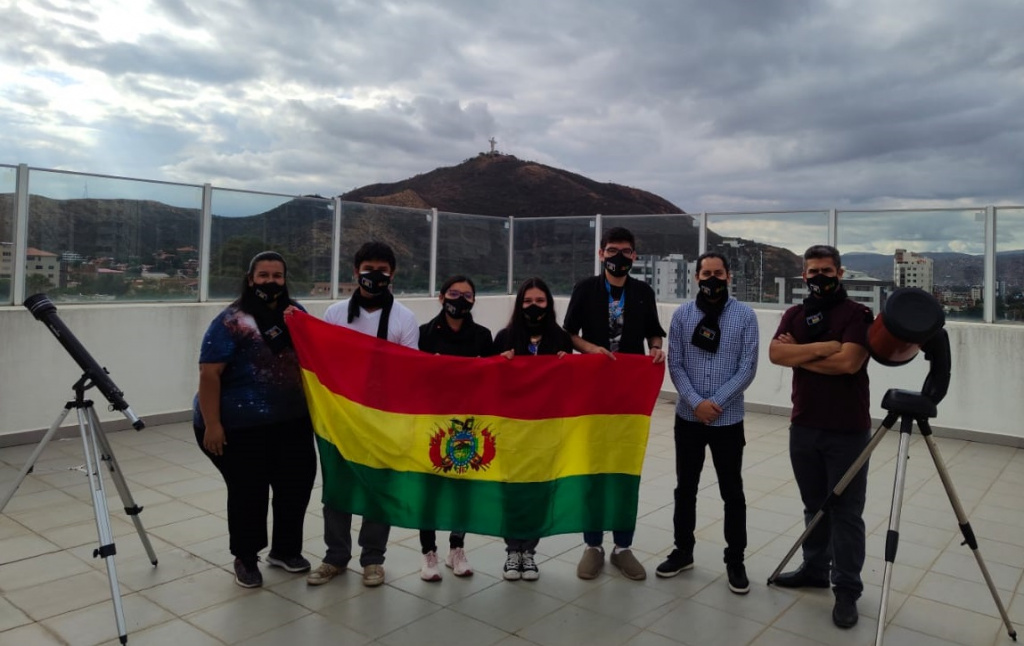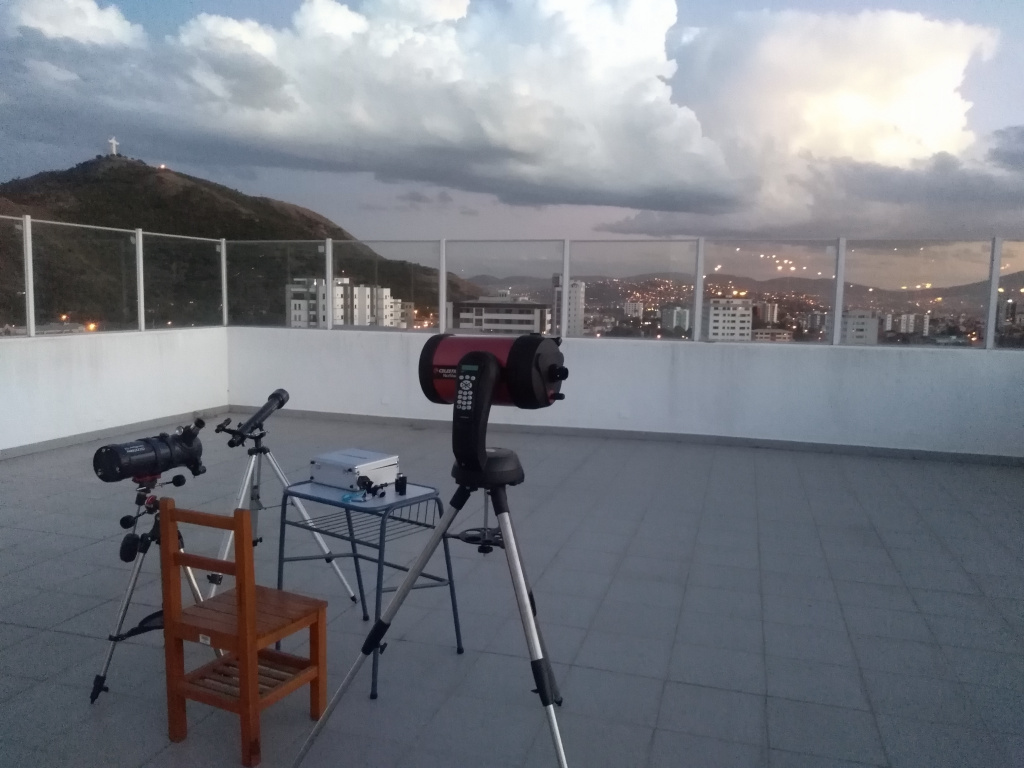The Bolivian San Agustin Remote Observatory
Gabriel Andres Jaimes Illanes, the IAU National Education Coordinator for Bolivia and member of the San Agustin Educational Foundation (FESA), reports on plans to develop a remote observatory to support astronomy outreach in Bolivia.
Read article in the fully formatted PDF of the Europlanet Magazine.
Astronomy is an intrinsic part of humanity’s world and cultural heritage. Talking about topics related to the Andean constellations, observation with instruments, outreach activities, cultural astronomy and archaeoastronomy is common in amateur clubs and schools throughout Bolivia. Astronomy is not an official subject within the national curriculum or our education system. However, topics relating to the Solar System, the Universe and stellar evolution can be found even in elementary school, and the capacity of astronomy to inspire is widely recognised.
The Bolivian San Agustin Remote Observatory is an initiative managed by San Agustín Educational Foundation (FESA) and supported by the 2021 round of the Europlanet Public Engagement Funding Scheme. It seeks to develop sustainable collaboration, inclusive participation, high-quality educational experiences, and innovation in research activities. Located in the city of Cochabamba, the project will put in place the instrumentation and the physical and management structures to create an efficient observatory that results in significant impact.
The evolution of astronomical instrumentation over the last fifteen years has allowed students, teachers, amateur astronomers, and interested people to make tangible contributions to the field of astronomy so that, as well as sharing their passion, they can carry out real research. Observations that make use of computerised mounts, corrective optics, narrow band filters, solar telescopes and generic accessories can generate a great variety of astronomical data and knowledge.
However, like everywhere around the world, the current pandemic situation has had a direct impact on educational systems in Bolivia, and made public access to scientific facilities and observations more challenging. Outreach to rural populations in remote regions, where telecommunications access is also often limited, has been particularly affected.
The San Agustín School, managed by FESA, has a long track-record of success for students and tutors participating in scientific olympiads. We have been the best performing school in Bolivia in four editions of the Olimpiada Científica Estudiantil Plurinacional Boliviana (OCEPB) competition, receiving awards from our state’s Vice President, as well as participating at the national, South American, Latin American and International levels. The Bolivian San Agustin Remote Observatory will be supported by this infrastructure and environment, in which we have already developed many different academic activities for students interested in astronomy.
The FESA foundation believes that astronomy and space sciences present a great opportunity for us to contribute significantly to our community through the generation of educational, scientific and outreach resources. Beyond the very constructive experiences in our school astronomy club, where we have carried out virtual sessions during the pandemic, we currently hold the National Astronomy Education Coordinator (NAEC) role for the International Astronomical Union (IAU) in Bolivia. Diverse experiences and approaches will be needed to support the growth of astronomy in Bolivia, and projects such as the Bolivian San Agustin Remote Observatory have great potential for scalability and impact in this field.
Despite our region’s strong academic performance, STEAM-trained workforce, and community of amateur astronomers, students and teachers with an interest in astronomy, the city of Cochabamba currently does not have any interactive museums for science, or observatories or planetaria.
The grant from the Europlanet Society’s Public Engagement Funding Scheme will not only provide instruments that will enable us to implement the project, but also help us with institutional support and is an endorsement for the growth and sustainability of the project. There are many different academic, social, and sustainable challenges for developing scientific projects in Bolivia. However, we firmly believe that the key to success is through building collaborations, like in our case with Europlanet and the global planetary science community.
Our next steps are to develop resources to train students in the use of the equipment and remote observatories. Through a programme of teacher-training, outreach activities, and positive case studies around participation in this first remote observatory in Bolivia, we hope to be able to see the eventual inclusion of astronomy in the school curriculum.






